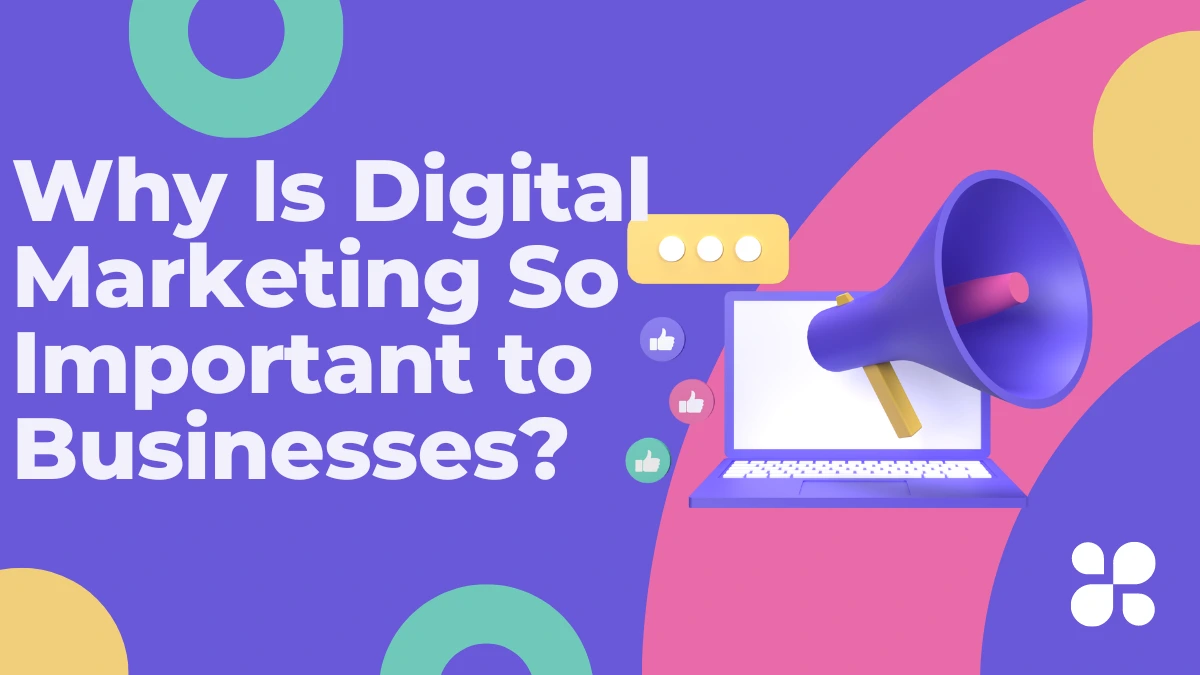
Why Is Digital Marketing So Important to Businesses?
Why Is Digital Marketing So Important to Businesses?
In today’s technology-driven world, digital marketing is no longer just an option for businesses; it’s a necessity. Whether you’re a small local shop or a global enterprise, digital marketing provides the tools and strategies needed to thrive in a competitive market. In this blog post, we will explore why digital marketing is so essential for businesses and provide answers to frequently asked questions (FAQs) to help you understand how to make the most of this powerful tool.
What Is Digital Marketing?
Digital marketing refers to all marketing efforts that use the internet or an electronic device. Companies use digital platforms including websites, email, social media, and search engines to communicate with both present and potential clients. Unlike traditional marketing, which relies on TV, radio, or print ads, digital marketing offers a more measurable and interactive approach to reaching your target audience.
Why Is Digital Marketing So Important to Businesses?
1. Reaches a Larger Audience
With over 5 billion internet users worldwide, digital marketing allows businesses to reach a much larger audience compared to traditional marketing methods. Whether you’re targeting local customers or global consumers, digital marketing breaks down geographical barriers and helps you connect with people wherever they are.
2. Cost-Effective
Digital marketing provides cost-effective solutions for businesses, regardless of size. Traditional marketing methods like TV ads or billboards can be expensive, especially for small businesses. In contrast, digital marketing platforms, such as social media advertising, pay-per-click (PPC) campaigns, and email marketing, allow you to set your budget and target specific audiences, making it more affordable.
3. Measurable Results
The capacity to track and measure results in real time is one of digital marketing’s biggest advantages. Analytics tools like Google Analytics, Facebook Insights, and email tracking systems allow businesses to monitor the performance of their campaigns. You can see which strategies are working, make data-driven decisions, and adjust campaigns accordingly.
4. Targeted Marketing
Businesses can target particular audiences with digital marketing according to their geography, interests, habits, and demographics. With tools like Google Ads, Facebook Ads, and LinkedIn, businesses can create highly personalized and relevant marketing campaigns to attract their ideal customers. Targeted marketing increases the chances of conversion and reduces the likelihood of wasting resources on uninterested audiences.
5. Builds Strong Brand Awareness
A well-executed digital marketing strategy helps businesses increase brand awareness and recognition. Through content marketing, social media engagement, and search engine optimization (SEO), you can make your brand visible to more people. The more people see your brand online, the more likely they are to remember it and choose it over competitors.
6. Boosts Customer Engagement
Digital marketing offers multiple channels for businesses to interact directly with customers. Whether through social media platforms, email newsletters, or chatbots on your website, digital marketing facilitates two-way communication. Engaging with your customers in real time allows you to build strong relationships, respond to queries quickly, and provide excellent customer service.
7. Enables Flexibility and Adaptability
The flexibility of digital marketing is one of its biggest benefits. Digital campaigns can have their performance modified instantly. If an ad isn’t working or if the market changes, you can quickly pivot without losing your entire investment. Whether you need to tweak the copy, adjust the targeting, or switch strategies altogether, digital marketing allows you to stay agile and adaptable.
8. Improves Conversion Rates
Converting leads into paying clients is the ultimate aim of any marketing campaign. Digital marketing offers multiple conversion channels, including email marketing, social media, and paid ads, that directly lead consumers to your website or product pages. These digital tools make it easier to guide customers through the sales funnel and increase conversion rates.
9. Helps Businesses Compete with Larger Brands
Small businesses can compete with industry giants by leveraging digital marketing strategies. The internet levels the playing field, allowing small businesses to reach their target audiences and create brand awareness at a fraction of the cost of traditional marketing. With digital marketing, you can carve out a niche and attract loyal customers by offering personalized services or niche products.
10. Enhances Customer Trust and Loyalty
Digital marketing allows businesses to build trust with their audience through consistent content, user engagement, and transparency. Positive customer reviews, testimonials, and active engagement on social media all contribute to enhancing brand credibility. By maintaining an active online presence, businesses can build long-term relationships with customers, fostering loyalty and repeat business.
FAQs on Why Digital Marketing is Important for Businesses
1. What is the main goal of digital marketing?
2. Is digital marketing suitable for all types of businesses?
3. How does digital marketing help small businesses?
4. What are the key digital marketing strategies for businesses?
5. What is the difference between traditional marketing and digital marketing?
6. Why is social media marketing important for businesses?
7. How does SEO fit into digital marketing?
8. Can digital marketing help increase customer loyalty?
9. How can I measure the success of my digital marketing efforts?
10. What is the role of content marketing in digital marketing?
Conclusion
Digital marketing has become indispensable for businesses of all sizes. It offers a cost-effective, measurable, and flexible way to reach and engage with your target audience. By leveraging SEO, social media, email marketing, and other digital strategies, businesses can improve brand awareness, build customer loyalty, and drive sales. As the digital landscape continues to evolve, businesses that invest in digital marketing will be best positioned to succeed in the future.

Leave a Reply